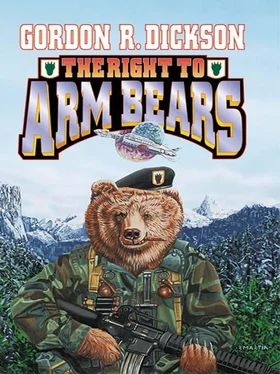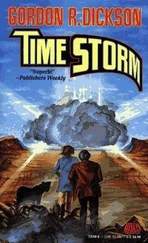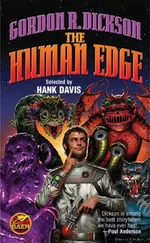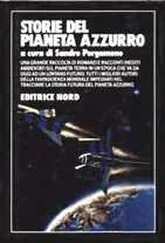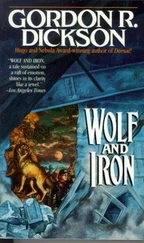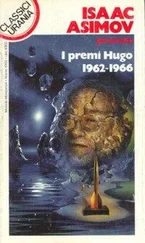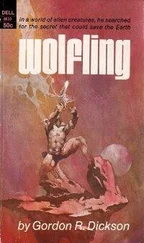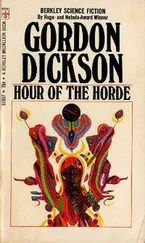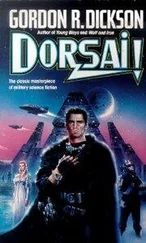Bill shook his head again.
“The Unconscious Agent isn’t only free to improvise,” went on Greentree. “He’s forced to improvise. And, being ideally suited to the situation and the characters in it, he can’t fail—we hope—to come up with the ideal solution.”
The last two words of this penetrated deeply into Bill.
“You hope—” he echoed bitterly. “So I was an Unconscious Agent, was I?”
“That’s right,” said Greentree. “The first one—of what will probably be many, now. Of course, we insured our bet on you by supplying you with a hypnoed storehouse of general Dilbian information and another complementary Dilbian-like human who was Anita. But the solution was all your own. And now I’m finding out you’ve also come up with an insight into the Dilbian character and culture we’ve never had before. But best of all is that you’ve proved the workability of something we have that the Hemnoid can’t match.”
Bill frowned.
“Why?” he asked. “You mean—they can’t find and send in personality-matched Unconscious Agents of their own? Why?”
“Because of a lack in their own emotional structure!” Greentree’s smile hardened a little. “Don’t you know? The Hemnoid character has a cruel streak (as we would call it) that prohibits their having anything but the most rudimentary capacity for empathy. Empathy—the ability to put yourself in somebody else’s shoes, emotionally. That’s what we humans have, that they haven’t. And that’s why your likeness to the Dilbians paid off the way it did. Your being like them wouldn’t have helped, if you hadn’t instinctively tried to think the way they did, in order to figure out what they were doing!”
Of course, thought Bill, suddenly. All at once he remembered his first clue to the fact that perhaps there was more to Dilbian nature than even a trained Hemnoid agent like Mula- ay seemed to know. He remembered how Mula- ay had taken it for granted that Bill did not empathize with someone like Bone Breaker, and had even used that as an example in explaining his own, Hemnoid nature. But Greentree was still talking.
“—if you only knew,” he was saying to Bill, “how many millions of individuals on Earth and even on the newly settled worlds were screened to find you, as the closest Dilbian-like human. And how much of our future dealings with alien races has been riding on your success or failure here. Did you know you can just about write your own ticket as far as future work or study goes, after this? Did you know at the moment you’re currently the most valuable man off-Earth in the whole Alien Cultures area…”
He went on talking, and slowly Bill’s spirits began to rise, in spite of himself, like a cork released in deep water and headed for the surface. Within himself—though he was far from admitting it to Greentree, yet—he had to face the fact that he was not the revengeful type, and if there had been a shadow of an excuse for what he had believed Greentree had done, he would probably never have pushed matters to the point of filing charges against the tall man, anyway. Particularly since, after all, Bill had come out of the situation on Dilbia without harm, and even with some benefits in the way of new knowledge and experience.
Certainly, therefore, now that it was turning out that there were strong extenuating circumstances, there was no reason why he shouldn’t sit back and ride with the situation. Was that his Dilbian-like nature counseling him how to act? As he stopped to question himself, suddenly a new aspect of the situation burst upon him like sunlight through an unexpected break in a heavy cover of clouds.
If he was Dilbian-like and Anita was Dilbian female-like, he saw at once why she had been so intractable and upset these last few days. Of course! Here, when he was in charge of the situation, he had been going around pretending he had done nothing, and was nothing—at just the time when Anita had expected him to show his authority and strength.
Sweet Thing, now that he stopped to think of it, had provided him with considerable insight into the way Anita’s mind might be working. He woke from his thoughts to find that Greentree was shaking his hand and saying good-bye.
“…You’ll understand in the long run, Bill, I know,” the tall man was saying. “I’ve got to go now. Somebody’s got to hold down the situation at the project here, for the moment. But I’ll be following you and Anita to Earth shortly. We’ll talk some more then. So long…”
“Good-bye,” said Bill. He watched the tall man move off towards the woods where Barrel Belly—Wasn’t Drunk, that is, Bill corrected himself—was still standing disconsolately. Poor old Mula- ay , thought Bill; he was the real loser—and the only real villain there had been in the whole situation. But then Bill shivered, suddenly, remembering the episode with Grandpa Squeaky; and, later on, the cliff-edge above Outlaw Valley, where only a light shove from the Hemnoid had been needed to send Bill plunging to his death. Mula- ay had been a real enough villain and enemy, at that. Bill shifted his gaze to another part of the meadow. The sun was moving into later afternoon position between the trees, and Bone Breaker, having finished his talk with the smaller Dilbian male, was finally headed off toward Muddy Nose and his dinner table. Bill stared after the big Dilbian, his attention suddenly caught.
“Bill!” It was Anita’s voice calling exasperatedly from the open hatch of the courier ship behind him. “Come on ! We’re ready to go!”
“Just a minute!” he shouted back.
He squinted impatiently against the sunlight, striving to catch the tall figure of Bone Breaker in silhouette again. Yes, there it was. There was no doubt about it.
Marriage was apparently being good to the Bone Breaker. It was visible only when you caught him blackly outlined against the sun this way, but it was undeniably a fact, all the same.
Bone Breaker had begun to put on weight.
“He’s a pretty tough character, that Iron Bender—” said the Hill Bluffer, conversationally. Malcolm O’Keefe clung to the straps of the saddle he rode on the Hill Bluffer’s back, as the nearly ten-foot-tall Dilbian strode surefootedly along the narrow mountain trail, looking somewhat like a slim Kodiak bear on its hind legs. “But a Shorty like you, Law-Twister, ought to be able to handle him, all right.”
“Law-Twister…” echoed Mal, dizzily. The Right Honorable Joshua Guy, Ambassador Plenipotentiary to Dilbia, had said something about the Dilbians wasting no time in pinning a name of their own invention on every Shorty (as humans were called by them) they met. But Mal had not expected to be named so soon. And what was that other name the Dilbian postman carrying him had just mentioned?
“Who won’t I have any trouble with, did you say?” Mal added.
“Iron Bender,” said the Hill Bluffer, with a touch of impatience. “Clan Water Gap’s harnessmaker. Didn’t Little Bite back there at Humrog Town tell you anything about Iron Bender?”
“I… I think so,” said Mal. Little Bite, as Ambassador Guy was known to the Dilbians, had in fact told Mal a great many things. But thinking back on their conversation now, it did not seem to Mal that the Ambassador had been very helpful in spite of all his words. “Iron Bender’s the—er—protector of this Gentle… Gentle…”
“Gentle Maiden. Hor!” The Bluffer broke into an unexpected snort of laughter. “Well, anyway, that’s who Iron Bender’s protector of.”
“And she’s the one holding the three Shorties captive—”
“Captive? What’re you talking about, Law-Twister?” demanded the Bluffer. “She’s adopted them! Little Bite must have told you that.”
Читать дальше
